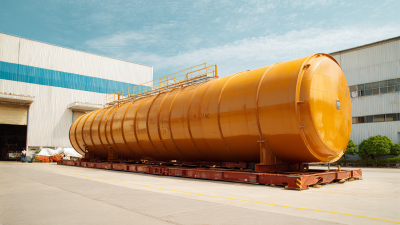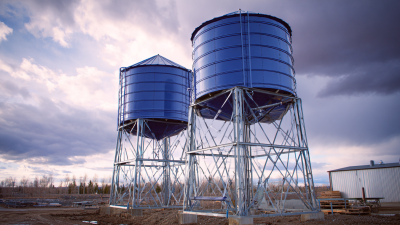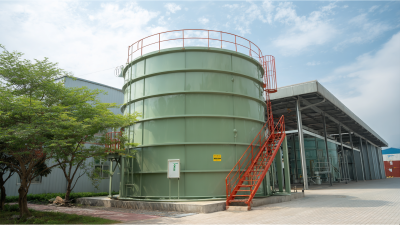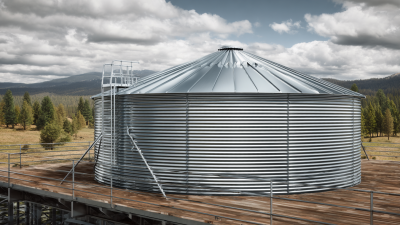As urbanization continues to accelerate, the need for sustainable water storage solutions has become paramount. According to the World Bank, urban populations are expected to reach 68% by 2050, increasing the demand for efficient water management systems.
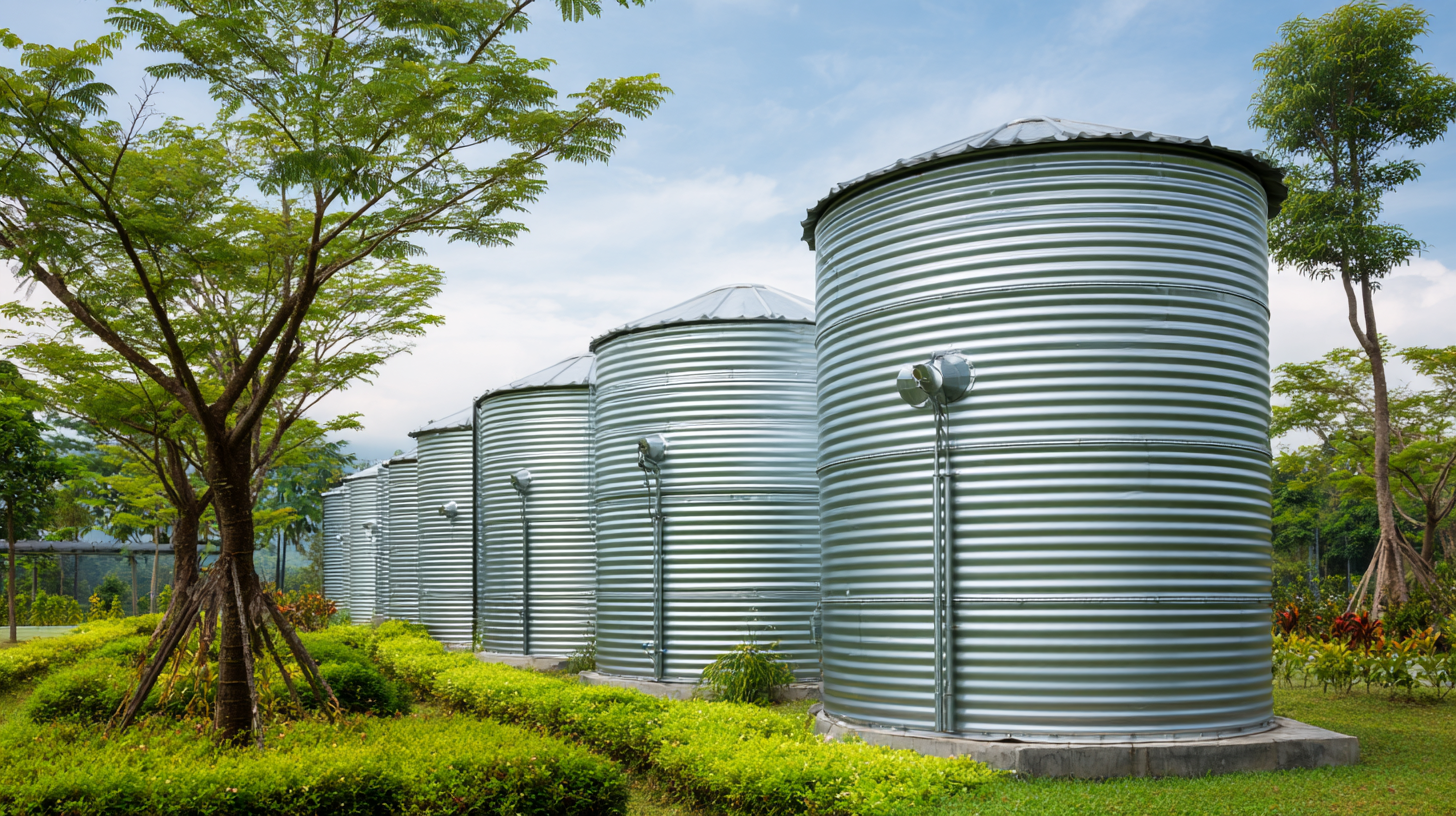 Steel Water Tanks emerge as a robust alternative in modern water storage, offering durability, recyclability, and superior resistance to corrosion compared to other materials. A recent report by MarketsandMarkets indicates that the global water storage market is projected to grow from $24 billion in 2020 to $31 billion by 2025, with steel tanks playing a vital role due to their long lifespan and eco-friendly characteristics. With their ability to withstand extreme weather conditions and reduce water contamination risks, Steel Water Tanks represent not only a practical solution but also a commitment to sustainability, aligning with the growing emphasis on environmentally responsible infrastructure.
Steel Water Tanks emerge as a robust alternative in modern water storage, offering durability, recyclability, and superior resistance to corrosion compared to other materials. A recent report by MarketsandMarkets indicates that the global water storage market is projected to grow from $24 billion in 2020 to $31 billion by 2025, with steel tanks playing a vital role due to their long lifespan and eco-friendly characteristics. With their ability to withstand extreme weather conditions and reduce water contamination risks, Steel Water Tanks represent not only a practical solution but also a commitment to sustainability, aligning with the growing emphasis on environmentally responsible infrastructure.
Steel water tanks have emerged as a sustainable solution for modern water storage needs due to their durability and recyclability. One of the primary advantages of steel tanks is their long lifespan; they can withstand harsh environmental conditions, reducing the frequency of replacements. This longevity not only minimizes waste but also lowers the overall carbon footprint associated with manufacturing and transporting new tanks. Furthermore, steel is a fully recyclable material, which means that once the tanks reach the end of their life cycle, they can be repurposed, thus conserving resources and reducing landfill contributions.
Another significant benefit of steel water tanks is their resistance to corrosion when treated appropriately, allowing for safe storage of potable water without the risk of contamination. This is crucial in maintaining water quality in various applications, from agricultural practices to urban supply systems. Additionally, steel tanks can be insulated to reduce heat gain and energy consumption, making them an environmentally friendly choice. Overall, the combination of durability, recyclability, and effective water quality management positions steel water tanks as a leading option in the quest for sustainable water storage solutions.
Steel water tanks stand out for their exceptional durability and longevity, making them an ideal choice for sustainable water storage solutions. Unlike plastic or concrete alternatives, steel tanks have a remarkable ability to withstand harsh environmental conditions, including extreme temperatures and heavy impacts. This resilience minimizes the need for frequent replacements, thereby reducing waste and the environmental footprint associated with manufacturing and transporting new tanks.
Moreover, the longevity of steel water tanks contributes significantly to their sustainability. With proper maintenance, these tanks can last for decades, providing a reliable source of water storage without the need for continuous resource consumption. In contrast, other materials may degrade over time, leading to leaks and the eventual need for replacement. By investing in durable steel tanks, communities can improve their water storage systems while promoting eco-friendly practices that align with modern sustainability goals.
Steel water tanks have emerged as a sustainable solution for modern water storage needs, particularly due to their energy efficiency and ability to significantly reduce carbon footprints. According to the World Steel Association, steel production has evolved, with advancements in manufacturing processes leading to a decrease in carbon emissions by up to 50% over the last few decades. This transformation not only makes steel an environmentally-friendly choice but also supports the global push towards sustainability.
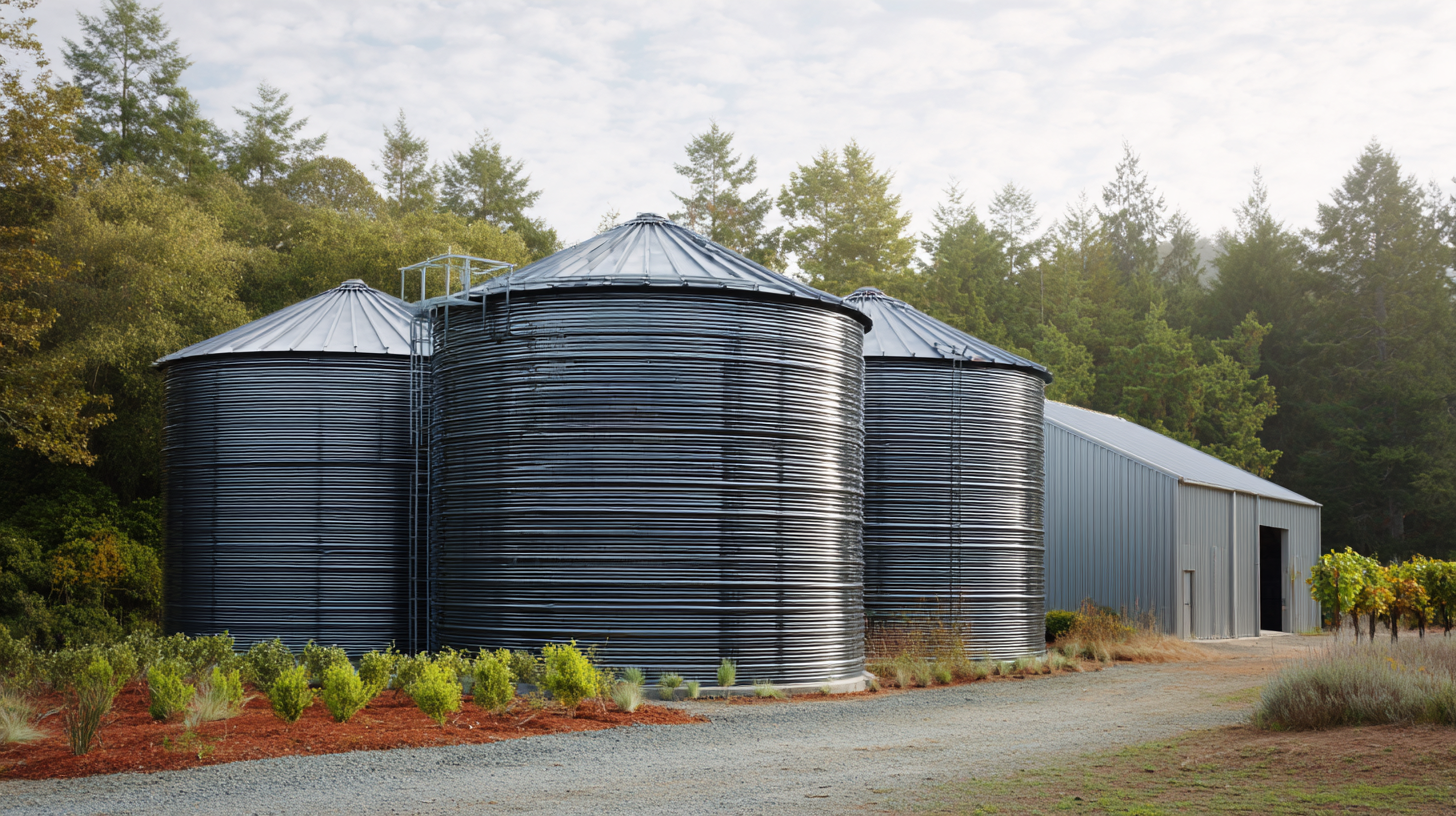
Moreover, steel tanks are designed for durability and longevity, which further enhances their energy efficiency. Research from the American Water Works Association reveals that water storage solutions lasting over 20 years require less frequent replacement, resulting in reduced resource consumption and energy use associated with manufacturing and transportation of replacement tanks. Additionally, the insulation properties of steel tanks minimize energy loss, helping to maintain water temperature and reduce energy costs for heating or cooling systems. With these benefits, steel water tanks stand out as an optimal choice for reducing the overall environmental impact of water storage.
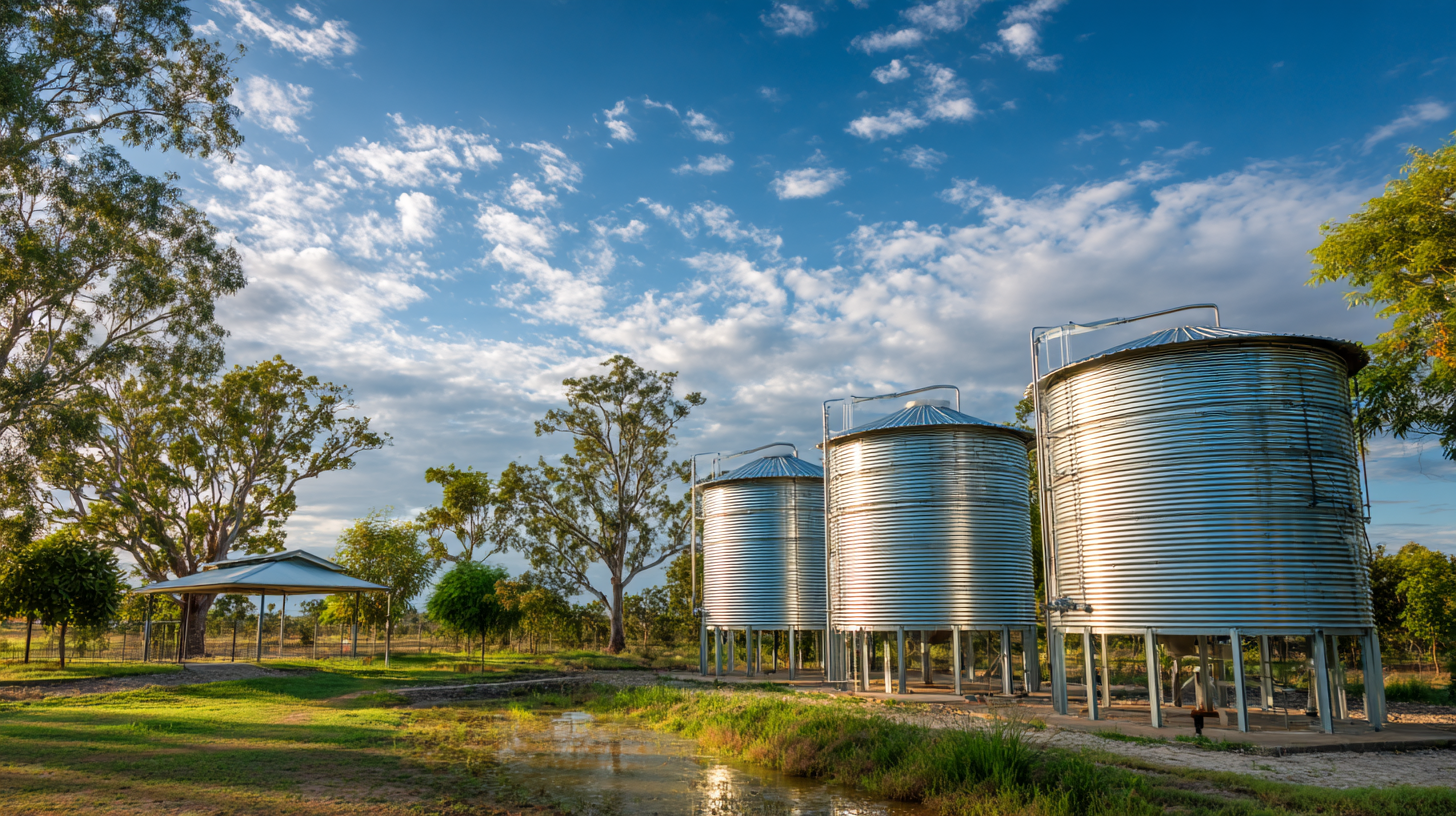 The recyclability of steel plays a crucial role in establishing sustainable water storage solutions. As modern society pushes for a circular economy, the introduction of steel water tanks aligns perfectly with these goals. Unlike other materials, steel can be recycled indefinitely without losing quality. This characteristic transforms end-of-life water storage systems into valuable resources rather than waste, promoting a cycle where the initial input material continuously reintegrates into new products.
The recyclability of steel plays a crucial role in establishing sustainable water storage solutions. As modern society pushes for a circular economy, the introduction of steel water tanks aligns perfectly with these goals. Unlike other materials, steel can be recycled indefinitely without losing quality. This characteristic transforms end-of-life water storage systems into valuable resources rather than waste, promoting a cycle where the initial input material continuously reintegrates into new products.
The circular economy approach is gaining traction across various sectors, including energy storage and mining, highlighting a broader trend of resource utilization efficiency. For example, advanced recycling technologies are evolving to recover materials from lithium-ion batteries, showcasing how industries are prioritizing sustainability. Similarly, steel water tanks can contribute to this movement by ensuring that once their function is fulfilled, the materials can easily be reclaimed and repurposed, closing the loop on water storage solutions. By adopting such practices, businesses and communities can minimize their environmental impact while maximizing resource efficiency.
Steel water tanks have emerged as a cost-effective solution for modern water storage needs, offering long-term benefits that are crucial for both residential and commercial applications. Their durability and resistance to corrosion minimize the need for frequent replacement or maintenance, allowing users to realize substantial savings over time. Unlike other materials, steel provides a robust option that can withstand various environmental factors, ensuring a reliable water supply without the recurring costs associated with less resilient alternatives.
In addition, the initial investment in steel water tanks pays off through their lifespan and efficiency. While the initial cost may be higher than some other materials, the longevity and lower maintenance costs more than compensate for it, making steel a wise financial choice. Moreover, as awareness of sustainability grows, many users are attracted to the recyclable nature of steel, aligning their purchases with eco-friendly practices. Choosing steel water tanks not only fulfills immediate water storage needs but also represents a forward-thinking investment for the future, underscoring the financial advantages they offer in a world increasingly focused on sustainable solutions.
| Feature | Steel Water Tanks | Alternative Solutions |
|---|---|---|
| Durability | Up to 50 years | 15-20 years |
| Maintenance Cost (annual) | $200 | $500 |
| Recyclability | 100% | Limited |
| Initial Investment | $5,000 | $3,500 |
| Water Quality | Excellent | Moderate |
| Installation Time | 1 week | 2 weeks |


